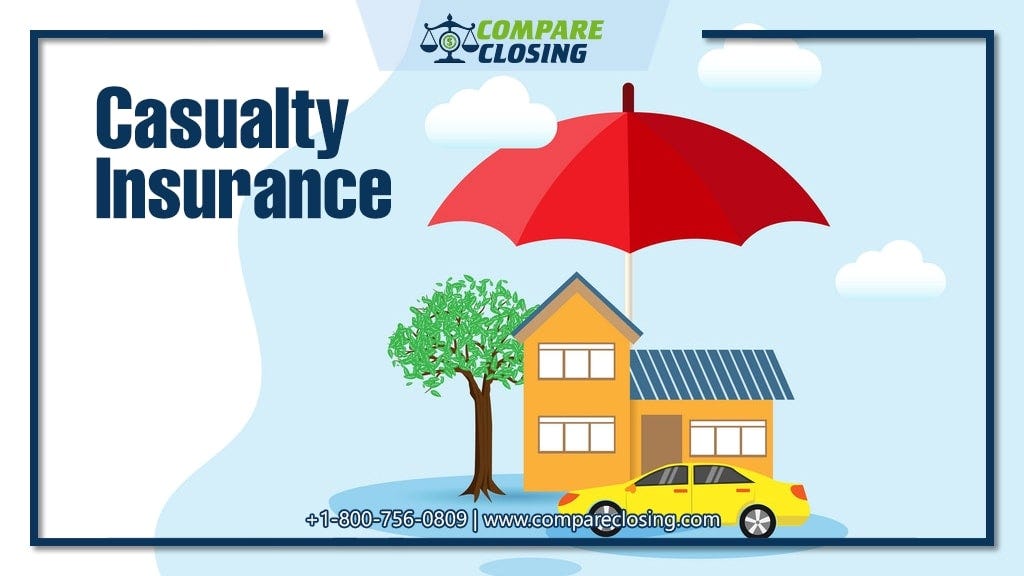
About Property Casualty Insurance
Any insurance plays an important role in an individual’s life. Whether it is homeowners insurance, auto insurance, or life insurance, ensure that you don’t have to burden yourself in the event you need the money to cover the damages.
Insurance is basically of two types one is for people and the other is for assets. In this post, we will learn what is property-casualty insurance and how it works.
What Is Casualty Insurance?
Property and casualty insurance is insurance against property loss, damage, or similar liability.
This includes auto insurance, vandalism or theft insurance, elevator insurance, and liability insurance.
Worker compensation is an important type of casualty insurance that protects the business from liability arising due to any injuries to the employees at the job.
Liability insurance is another type of casualty insurance. These are the losses that happen due to the interaction of the insured with others on the property.
Casualty insurance is important insurance for homeowners and car owners since the damage could end up being an unbearable expense.
For example, if John hits Jane’s car that was parked it results in damage of five hundred dollars.
While John was at fault, he is responsible for paying for those damages. The liability insurance will protect John from paying the entire amount from his pocket.
Similar to how you buy property insurance for protection, liability insurance is used to protect yourself from a legally liable condition like injury or damage to the property.
In the insurance industry the liability losses are often termed as third party losses where the insured is the first party, the insurance company stands as a second party, and the one to whom the insured is liable to pay is the third party.
There are many insurance types under the domain of property-casualty insurance, these include aviation, worker’s compensation, and auto insurance.
If you have your own business, a few types of property-casualty insurance may be important for you.
This is because there are policies available for cyber fraud insurance, employee theft, identity theft, etc. If you have an online business, make sure that the policy covers the website.
If your business is dependent on computers, then you may look for insurance on the same terms. In today’s world, most businesses have a property-casualty insurance cover because if you are into production there is a huge possibility of someone getting injured.
Even if you work as a sole proprietor, it is good to have insurance in your line of work.
The other type of insurance that falls under property and casualty insurance is windstorm insurance.
This is an unusual type of property-casualty insurance that protects the policyholders from property damage caused by windstorms.
The windstorm insurance is generally offered as a rider on standard casualty insurance with an extended coverage endorsement. This insurance is one of the subsets of storm insurance.
What Are The Advantages Of Property And Casualty Insurance?
Property and casualty insurance comes in very handy for both individuals and business owners.
These will protect you against damages occurring to your most prized possessions. Having both of them will give you complete coverage against potential damages to your material assets.
IT also helps you to mitigate unwanted and untimely financial risks better. You can dedicate yourself completely to your business making sure that you are insured.
Though you would not need the insurance claimed every year and might feel like you are just adding another expense to your pocket.
However, it will come through and make more sense until you are in a situation where you need it.
Conclusion
Insurance is a very integral part of any individual’s or company’s financial planning. Insuring yourself or your company the employees can benefit a lot in terms of mitigating the risks more efficiently.
In its most basic form, property and casualty insurance included coverage against loss of properties like a building or a vehicle or other forms wherein the employee of the company is injured during the work.
If you are a business owner, having property and casualty insurance will protect you and your workers from potential heavy losses that might be incurred due to certain types of damages.
https://www.compareclosing.com/blog/what-is-property-casualty-insurance/
Comments
Post a Comment